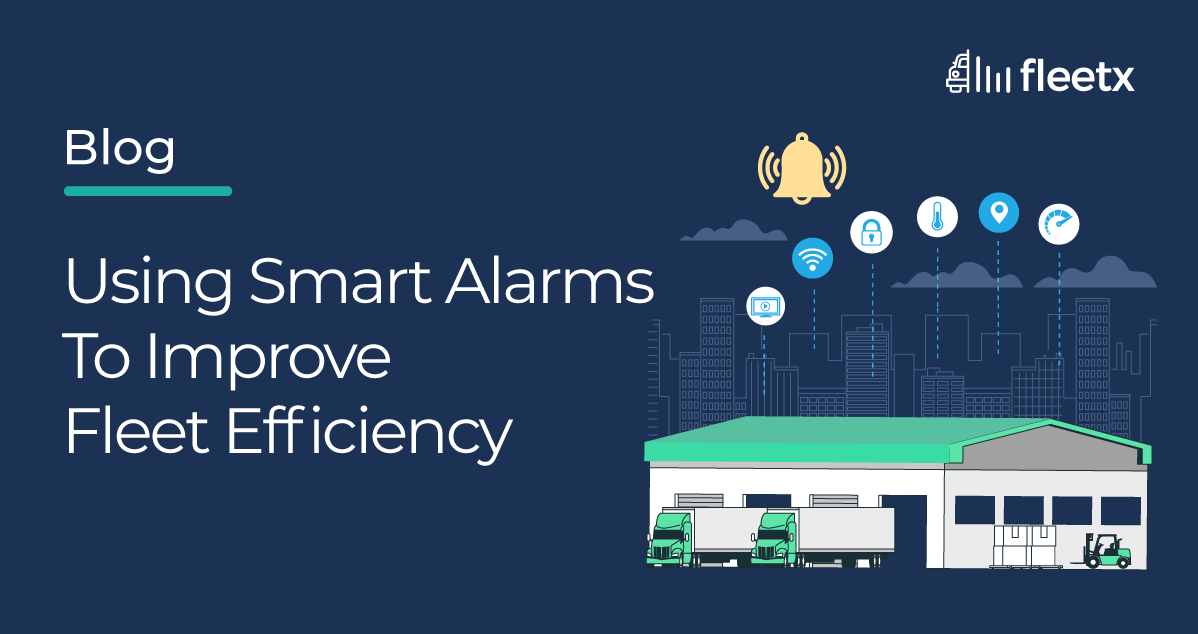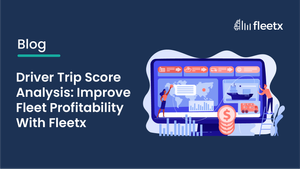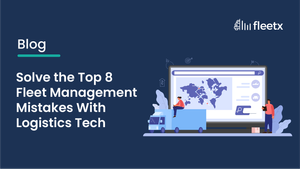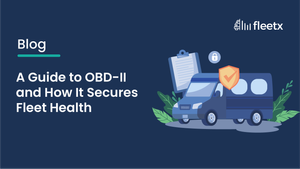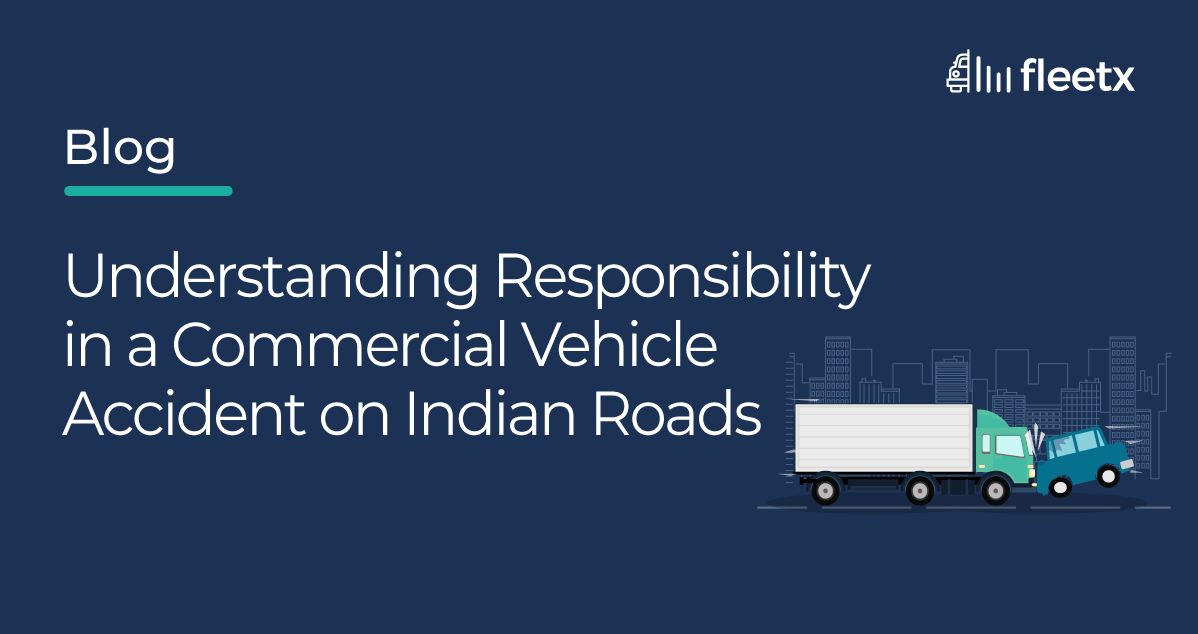
As the saying goes, accidents happen. But accidents can be more than mere inconveniences—they can have far-reaching consequences for everyone involved. The commercial vehicle industry plays a pivotal role in ensuring the seamless movement of goods and services in the country, and is a key driver of the economy. Yet, with this critical role comes a pressing question: who is responsible in a commercial vehicle accident?
The following article sets out to answer this question; we will navigate through the realm of commercial insurance, explore the legal requirements that govern the industry, and better understand personnel liability — all within the context of the rules and regulations that shape the Indian landscape.
From the packed streets of Mumbai to the serene highways of Kerala, the principles discussed here are applicable across the nation's diverse terrains. So, whether you're a fleet manager seeking to safeguard your assets or a driver committed to safe and responsible operation, this article is for you!
Commercial Insurance: Protecting Your Assets
Commercial vehicle accidents can lead to substantial financial losses. This is where commercial insurance plays a pivotal role. In India, commercial vehicle owners are legally required to have comprehensive motor insurance, commonly known as third-party insurance. This insurance covers liability for third-party injuries and property damage, ensuring that victims receive compensation in case of an accident.
However, having only third-party insurance may not suffice for fleet operators. Comprehensive insurance, which covers damages to your own vehicles as well, is highly recommended. This insurance can prove invaluable in reducing financial losses resulting from accidents, repairs, and downtime. Fleet management solutions can play a crucial role in monitoring driving behavior, reducing the risk of accidents, and potentially lowering insurance premiums.
Legal Requirements: Navigating the Indian Legal Landscape
Indian law clearly defines the responsibilities in commercial vehicle accidents. According to the Motor Vehicles Act, 1988, the owner of the vehicle is primarily liable for any accident involving their commercial vehicle. It is imperative for fleet managers to understand this responsibility and ensure their vehicles comply with all legal requirements, including proper documentation, permits, and adherence to safety norms.
Additionally, drivers must possess a valid commercial driver's license (CDL) and comply with the Motor Vehicles Act's guidelines. Monitoring driver qualifications and ensuring compliance is vital. Fleet management solutions can help track and manage these compliance aspects efficiently and autonomously, ensuring your fleet operates within the bounds of the law.
Personnel Liability: Holding Individuals Accountable
In commercial vehicle accidents, it's not just the vehicle or the company that can be held responsible; individual drivers can also be liable. If a driver is found to be negligent, reckless, or under the influence of alcohol or drugs during an accident, they may face criminal charges, and their personal assets could be at risk.
It is the responsibility of the fleet managers to establish clear policies as well as a safety culture, provide regular training, and monitor driver behavior to minimize personnel liability. Implementing smart fleet management solutions can aid in real-time monitoring of driver performance, ensuring adherence to safety protocols, and documenting compliance for legal protection.
Safety Protocols and Best Practices: Ensuring Fleet Safety
Safety is the cornerstone of any successful fleet management operation. In India's diverse and often challenging road conditions, having robust safety protocols and best practices in place can significantly help reduce the number of accidents that occur. Here are key elements to consider:
1. Vehicle Maintenance: Regular and proactive vehicle maintenance is paramount. Implement a strict maintenance schedule to ensure that all vehicles are in optimal working condition.
Use fleet management solutions to monitor vehicle health, schedule maintenance, and receive alerts for potential issues.
2. Driver Training and Certification: Invest in comprehensive driver training programs that cover safe driving techniques, defensive driving, and emergency procedures. Ensure that all drivers possess the required commercial driver's licenses (CDLs) and comply with the training and certification standards set by regulatory authorities.
3. Obey Traffic Rules: Emphasize strict adherence to traffic rules and regulations. Encourage drivers to obey speed limits, traffic signals, and road signs. Use telematics and GPS tracking to monitor driver behavior and provide real-time feedback on rule violations.
4. Fatigue Management: Combat driver fatigue by enforcing rest and break schedules that comply with legal hours of service regulations. Implement driver monitoring systems (DMS) that track driving hours and provide alerts when drivers are approaching their limits.
5. Emergency Response Plans: Develop and communicate clear emergency response plans for accidents, breakdowns, or poor weather conditions.
6. Telematics and Data Analysis: Leverage telematics and data analytics to monitor driver behavior, including speeding, harsh braking, and abrupt acceleration. Analyze data to identify trends and areas for improvement in safety practices.
7. Continuous Improvement: Establish a culture of continuous improvement in safety. Encourage feedback from drivers and fleet management teams to identify and address safety concerns. Regularly review and update safety protocols based on lessons learned from accidents or near-misses.
8. Safety Incentives and Recognition: Implement safety incentive programs that reward drivers for accident-free periods and safe driving practices.
Parting Thoughts
Understanding the nuances of responsibility in commercial vehicle accidents is critical. Commercial insurance, legal requirements, and personnel liability are three interconnected aspects that must be carefully managed to protect your fleet and your company's reputation.
In conclusion, while accidents are never welcome, being prepared and informed can make all the difference in navigating the complexities of responsibility in a commercial vehicle accident. Make sure your fleet management is equipped with the right tools and knowledge to ensure safety, compliance, and accountability in the challenging landscape of Indian roads. If you are interested in further exploring the topic, do check out our article on Post-Acccident Procedures!



